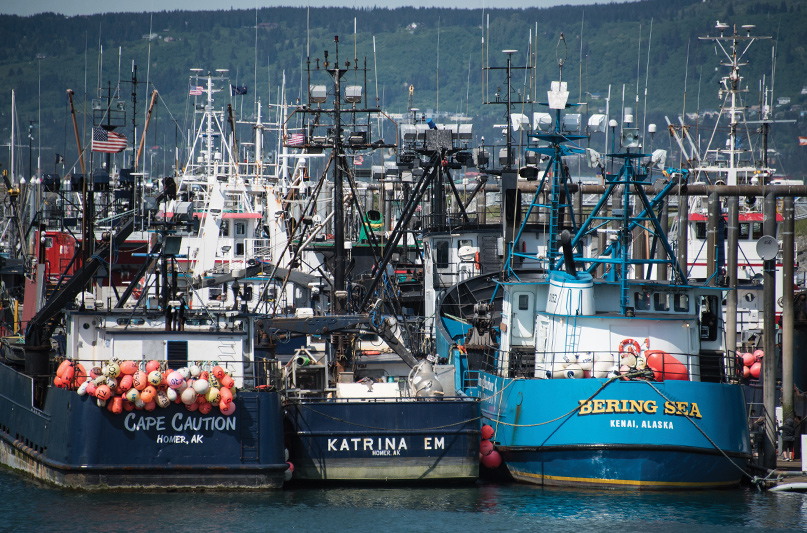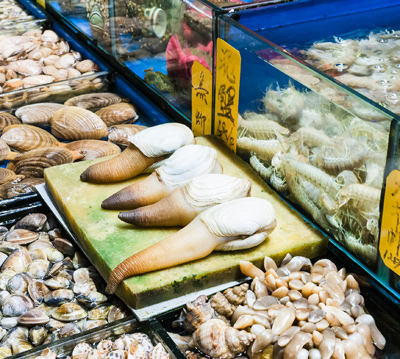Since the novel coronavirus emerged from China in late 2019, it has sparked a disease dubbed COVID-19 that is extremely contagious. COVID-19 is spreading around the globe like wildfire, taxing the healthcare systems of many countries, and killing people with compromised immune systems. The pandemic has even reached the Alaskan fishing industry, setting off alarm bells in the Alaska fishing industry not heard since the 2008 financial crisis.
Many fishing vessels that ply Alaskan waters are facing restrictions from entering Chinese ports and fresh seafood catches are currently languishing in cold-storage units. Other fishing boats are either stuck at docks, waiting for crews to return to work, or idling in “floating quarantine zones” until the workers can be tested and declared free of the virus.

Under this extended period of limbo, U.S. seafood exports to China, worth about $1 billion per year, are being threatened by the crisis. China, the number-one trade partner for the ports of Seattle and Tacoma, typically exports containers full of goods, such as clothing, toys and electronics. The containers return to China laden with Alaskan seafood and other U.S. products. Since COVID-19’s arrival, however, this flow has slowed to a trickle.
Testing for the virus was ongoing in Alaska as of early March, and in Washington state, the disease’s toll was mounting with cases climbing over 2500 and deaths nearing 150. The novel coronavirus, which can trigger acute respiratory failure in humans, has an incubation period of up to two weeks. Many parts of the world basically shut down in an attempt to halt the disease’s progress.
One of the first economic fishing casualties of 2020 was the cancellation of Seafood Expo North America, set to take place March 15-17 in Boston. After many weeks of monitoring the evolving situation around COVID-19 and evaluating the full spectrum of feedback,
Diversified Communications, the show’s coordinator, decided to halt the 40th edition of the conference.
This decision was soon followed by Diversified’s postponement of the Seafood Expo Global in Brussels, scheduled for April 21-23. The fishing industry has joined the rest of the world in postponing or cancelling conferences, events, and gatherings.
The Bristol Bay Regional Seafood Development Association (BBRSDA) has been following the outbreak for several months and has particularly shown an interest in Alaska’s sockeye salmon market. “At this point there are many unknowns,” read a recent statement from BBRSDA, “but in general it is disrupting industry supply chains and, as such, is generally a negative factor for markets.”
The group also noted that an increasing amount of farmed salmon has been diverted away from Asia into other markets, such as the United States, which has put downward pressure on farmed salmon prices. At the same time, canned goods and frozen salmon may be seeing an uptick in buying as people stock up for the worst of the outbreak.

“BBRSDA will continue to monitor the situation moving forward,” the statement continued. “Depending on the length and severity of the crisis, there is a potential for the virus to affect staffing in processing plants. We will post more information as it becomes available.”
One of the most vulnerable sectors of the Alaskan and Pacific Northwest fisheries industry has been geoducks, the two-foot-long bivalves considered a delicacy in Chinese markets. According to the Southeast Alaska Dive Fisheries Association, 95% of the elongated clams harvested in the region are sold in China, but this year demand has plummeted in the wake of the coronavirus.
Adding to the trouble is that geoducks are considered a “live market” species, so none of them can be frozen or canned for use later when demand may rise again. With the collapse of the Chinese market, prices have fallen from $5-$10 per pound to just $1 per pound today.